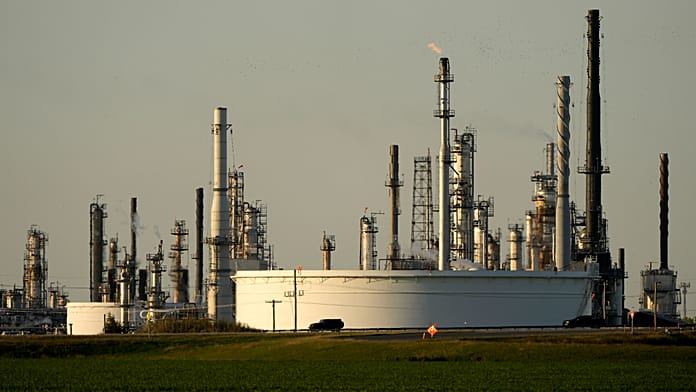
Worldwide methane emissions are still rising despite a global pledge adopted in 2021 by several countries, the COP30 climate summit has been warned, putting a critical goal for mitigating climate change in severe danger.
The findings are the subject of the 2025 Global Methane Status Report, produced by the United Nations Environment Programme (UNEP) and the Climate and Clean Air Coalition (CCAC). Together they explain that while progress has been made on the methane front, the world will struggle to limit global heating to 1.5°C between now and 2050 unless it pushes to achieve its targets faster.
Methane is a non-carbon greenhouse gas arising from fossil fuel production or livestock digestion, and is a significant contributor to global warming. The International Energy Agency (IEA) says the gas is responsible for about 30% of the rise in global temperature since the industrial revolution.
Methane traps heat more effectively than carbon dioxide but stays in the atmosphere for only 10 to 12 years, whereas carbon dioxide persists for hundreds or thousands of years. Climate scientists argue that increased efforts to cut methane emissions could therefore rapidly accelerate efforts to mitigate rising temperatures.
However, the latest report explains that methane emissions are still rising, and that targets set to reduce them are not being reached.
Based on current national policies and pledges, UNEP and CCAC predict an 8% net reduction of methane emissions by 2030. That is far below the 30% goal set four years ago at COP26 in the form of the Global Methane Pledge, which was joined by 159 countries and the European Commission.
“Reducing methane emissions is one of the most immediate and effective steps we can take to slow the climate crisis while protecting human health,” said UNEP’s executive director, Inger Andersen.
The report also emphasises that given the urgency of the problem, the only way to sufficiently lower methane emissions by 2030 is via existing legislation and regulations, such as those adopted by EU member states.
Some of the solutions mentioned in UNEP’s report include leak detection and repair programmes, plugging of abandoned wells in the oil and gas sector, and water management measures for rice cultivation.
Responding to the report’s release, European Commissioner for Energy Dan Jørgensen said the aim now is to scale technological solutions that will help industries cut their methane emissions.
“The Global Methane Pledge has transformed ambition into tangible progress,” he said. “Across sectors and continents, countries and companies are proving that methane reductions are achievable – and deliver cleaner air, stronger economies, and a safer climate.”
UNEP and CCAC estimate that over 80% of the 2030 emissions reduction goal could be achieved at low cost, with measures in the energy sector offering 72% of the overall mitigation potential, followed by waste (18%) and agriculture (10%).
Stepping up enforcement
Jonathan Banks, Global Director of the Methane Pollution Prevention programme at the Clean Air Task Force, said the global energy sector alone could cut its methane emissions by up to 86% by 2030, cutting about 94 million tonnes of emissions a year with solutions that cost only a small share of the sector’s income.
“What we need now is urgent and coordinated action to capture this enormous potential to bend the curve on climate change in our lifetimes,” Banks said, adding that “persistent gaps” in enforcement and monitoring should be fixed under oil and gas regulations.
The coal sector in particular “lags significantly behind”, according to the COP30 report, which cites a “lack of global voluntary initiatives for companies” despite proven solutions.
According to environmental think tank Ember, Poland is the EU’s largest coal mine methane emitter, accounting for more than 60% of the bloc’s total coal mine emissions in recent years.
Sabina Assan, Ember’s senior analyst, said the European Union’s methane law, adopted in 2024, could be a determining factor in reducing Poland’s coal mine methane emissions, but that poor enforcement and a lack of penalties will undermine its impact.
“Member states must unite behind full implementation to position the EU as the first region to deliver deep, credible methane cuts and finally kickstart action in a coal sector that has long lagged despite readily available, low-cost mitigation options,” Assan said.















